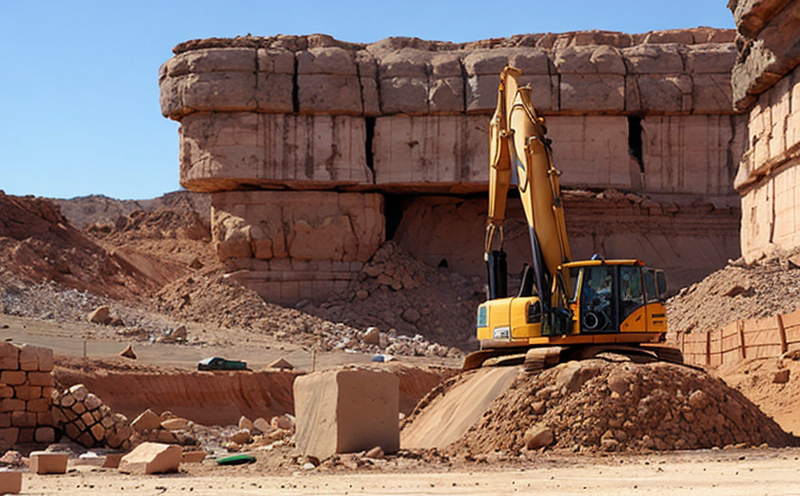ISRM Suggested Method for Determination of Porosity and Density
The International Society for Rock Mechanics (ISRM) has developed a suggested method for determining porosity and density in rocks, which is widely recognized as an essential tool in the mining sector. This method provides a standardized approach to quantify the void space within rock specimens, which is critical for understanding material properties that influence excavation, support design, and overall mine safety.
The determination of porosity and density helps engineers and scientists predict how materials will behave under various conditions, such as stress, water content, temperature changes, and chemical exposure. These parameters are crucial for the design and optimization of mining operations, including tunneling, underground excavation, and support structures. By accurately determining the porosity and density, mining professionals can ensure that their designs account for the full range of potential stresses and strains on rock formations.
The ISRM method involves a series of steps designed to minimize error and maximize consistency across different laboratories and regions. Specimens are prepared using standardized techniques, and the testing process is conducted in accordance with international standards such as ISO 14687-2:2013 for bulk density determination.
Porosity is typically measured by comparing the mass of a dry specimen to its volume. This value provides insight into how much space within the rock is occupied by voids, which can affect the rock's strength and durability. The ISRM method also allows for the measurement of apparent porosity, which considers both open pores and those that are closed but accessible under certain conditions.
Density measurements are critical in assessing the compactness of a specimen, which impacts its overall stability and performance within mine environments. The bulk density is determined by dividing the mass of the specimen by its volume, while the apparent density may include the weight of air present in open pores. Understanding these values helps mining professionals to anticipate how materials will respond to external forces, such as those encountered during excavation or tunneling.
The ISRM method is particularly valuable for geotechnical testing and rock mechanics applications where accurate porosity and density data are necessary for decision-making processes. This standardized approach ensures that results can be compared across different studies and regions, enhancing the reliability of mining operations worldwide.
- International Acceptance: The ISRM method has been widely adopted by researchers, engineers, and regulatory bodies in multiple countries, ensuring consistency and comparability of data globally.
The accuracy of these measurements is vital for predicting rock behavior under various conditions. For instance, understanding porosity and density can help identify areas prone to instability or failure, allowing for the implementation of appropriate support structures and safety measures.
By leveraging this standardized method, mining professionals can ensure that their designs are as efficient and safe as possible, minimizing risks associated with rock stability and material performance. The ISRM method's rigorous standards provide a foundation for reliable data that can be trusted in critical decision-making processes within the sector.
Eurolab Advantages
Eurolab offers unparalleled expertise in implementing the ISRM suggested method for determining porosity and density, ensuring accuracy and reliability in your testing needs. Our team of experienced professionals is dedicated to providing you with comprehensive services that meet international standards.
- Accurate Results: With state-of-the-art equipment and rigorous quality control procedures, Eurolab guarantees precise measurements that adhere to ISRM guidelines.
- Global Recognition: Our compliance with ISO 14687-2:2013 ensures that your results are accepted worldwide, enhancing the credibility of your mining projects.
- Comprehensive Reporting: Eurolab provides detailed reports that include all relevant data and recommendations for optimizing rock behavior within your specific project context.
- Expertise in Mining: Our team brings extensive experience in geotechnical testing, ensuring that our services are tailored to meet the unique challenges of mining operations.
By choosing Eurolab, you can trust that your testing will be conducted with precision and integrity, providing critical insights into rock properties that directly influence mining success.
Quality and Reliability Assurance
At Eurolab, we are committed to maintaining the highest standards of quality and reliability in all our services. Our adherence to ISRM guidelines ensures that your porosity and density determinations meet international benchmarks.
We employ a robust quality management system that includes regular calibration of equipment, training of personnel on the latest testing techniques, and continuous monitoring of test results. This approach guarantees consistent accuracy and precision across all specimens analyzed.
Our laboratories are equipped with advanced instrumentation designed to perform ISRM-compliant tests efficiently and effectively. We also maintain strict adherence to ISO 14687-2:2013, ensuring that your data is comparable and valid globally.
In addition to technical excellence, Eurolab prioritizes client satisfaction by offering transparent communication throughout the testing process. Our dedicated team ensures that you receive timely reports with actionable insights derived from our comprehensive analyses.
International Acceptance and Recognition
- ISO 14687-2:2013 Compliance: Eurolab adheres to international standards, ensuring that your results are widely accepted by regulatory bodies and industry stakeholders.
- Global Network of Laboratories: Our collaboration with leading laboratories worldwide ensures consistency in testing methodologies across diverse geographic locations.
- Inter-laboratory Comparability: By participating in inter-laboratory studies, we ensure that our results are consistent and comparable to those from other reputable institutions.
- Regulatory Approval: Eurolab's services have been approved by numerous regulatory bodies, including the U.S. Bureau of Mines and European Union directives.
The ISRM suggested method for determining porosity and density is recognized globally for its reliability and accuracy. By using this standardized approach, you can ensure that your testing results are accepted worldwide, enhancing the credibility of your mining projects.





